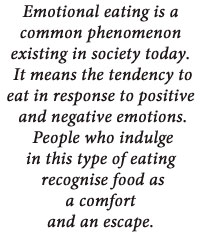
Food is a very essential element for the maintenance of our bodies. The total function of the body depends on the kind of food we consume. Unlike in the past, today we are experiencing a countless number of food variations which keeps us busy over choosing what we want to eat. These options have even made us pick food according to the mood.
Though we are far from the grocery or the restaurant, the delivery services have made our lives easier by bringing food to our doorstep. Now, food has crossed every border and boundary. Even foreign restaurants are available at every corner of the country offering us a whole new experience of exotic delicacies.
It is amazing how different culinary methods have altered the monotonous rhythm of the kitchen. Since we are dealing with food every single day till the end of our life, we need to look at it very carefully. Food has the power to refuel every cell in our body; it also has the power to terminate the life within it.
This is a proven fact by researchers and scientists who have observed how patterns of food influenced the behaviour and health by examining the food patterns of groups of people. The idea of knowing the purpose, quality, and quantity of food before consumption is very important despite letting your temptations decide on food.
Emotional eating
Emotional eating is a common phenomenon existing in society today. It means the tendency to eat in response to positive and negative emotions. People who indulge in this type of eating recognise food as a comfort and an escape. The ones who take it to extreme levels try to indulge themselves by excessive intakes while considering food as a drug. Artificial and fast food are particularly identified as the popular choice of emotional eaters.
Somehow, none of these food items are nutritious, but they are powerful enough to comfort the taste buds. However, they could cause considerable damage to the body in numerous ways. Obesity, chemical imbalance of the brain, cholesterol, high blood pressure, diabetes, gastritis, sleeping disorders, mood swings, a continuous feeling of tiredness are some of the health hiccups emotional eaters experience.
Instant cooking
Wrong cooking styles also could lead to health inconsistencies and problems. Modern-day cooking plays a big role in many urban communities.
The busy daily schedules have left the city inhabitants with limited time for everything. Pre cooked food items, instant food, flavour enhancers, preserving leftover food in the refrigerator for later consumption are the latest trends that have taken over the kitchen. The doctors claim that this kind of food intake has a high possibility of food poisoning and could cause cancers.
Extra burdens
Over intake of food, or having extra meals in between main meals would leave you addicted to food. The human body is the most complicated naturally functioning machine in existence. Therefore, how we maintain it would determine the future of it. Overconsumption and having extra meals apart from the main meals can create a huge impact on the functioning of the body. When we over energise the body, the excess fuel turns into fat as the body doesn’t find any other source to utilise it for. Frequent consumption leads to frequent hunger as the body has set the default to the rhythm of eating.
If you haven't experienced any of the above conditions related to food, you are lucky . But, if you go through health issues caused by unhealthy eating, it is time to look carefully aty our eating patterns.
Be a conscious eater!
Creating a regular pattern of eating could be quite a struggle if you haven't ever maintained one. But it is a matter of now or never. Since health is the ultimate wealth a human could possess, one should never take it for granted. If you are finding serious issues in your relationship with food it is recommended to consult a doctor right away.
Being aware of what goes through your mouth is the key step to become a conscious eater. Make your food intake go through the test which checks the purpose, quality and quantity. Never let your temptations and cravings hijack your emotions and take control over your relationship with food. Because we eat to live, not live to eat.
